Contact Lists.
contact lists.
these days, a new cell phone means a new phone book--a new list of names and numbers that you can access easily with the press of a button. many cell phone providers conveniently offer to reprogram the numbers from your old phone into your new one. having little to do while my family was partaking in the chaos of after-christmas sales, i decided to reprogram the numbers into my new phone manually.
as i went through the list, i noticed that there were several numbers that i didn't really need to store in the new phone. of course, there were the numbers of the acquaintances and the partners for school projects that i didn't really talk to after the first time i met them or we had worked together. but there were also the numbers of people who had at one time been my close friends.
i hesitated to let go of those numbers, i think because it meant that i didn't really foresee a time when i would try contact them, or that they would even try to contact me. i thought about things that kept us apart--distance, time, forgetfulness, school, differing social groups. and it was surprisingly disheartening.
but then i looked at what remained after i chiseled away at the old numbers in my digital phone book. i scanned the names, recalling the last time i had seen each person--maybe a couple of months, weeks, days, even minutes. i thought about the next time i would get a new phone and would have to select from this batch of numbers and decide which ones i would keep. i thought about the numbers that i would add in the future.
i guess what i value the most are the numbers that i had kept since my first cell phone: the numbers of my siblings, parents, and best friends. people who have supported me, loved me, taught me, made me laugh, kept me going--and continue to do so to this very day. and i felt pretty glad. i think that with time and change comes the need to let go, to clean out our phone books of the traces of people we've somehow lost touch with (or maybe even lost completely) along the way--but i think what matters is making the most of the time with the people who stay with you throughout it all; those people who are on speed dial, whose numbers you could dial with a keypad without having to check the number under their name. and with things like facebook, twitter, skype, and mobile phones, the connections we have with these people should be stronger than ever, even if we leave them to go to school or to go back home. and of course, there's always the chance that we could find ourselves reprogramming the numbers of the friends we once thought we had lost back into our phone books.
happy holidays, everyone! i wish you all the best in the new year :)
play me on wordswithfriends--username: cabanayan
More Posts from Brucebruce and Others
my actual response to the question: "may you stay forever young?"
see: booker t. washington, sigmund freud
Hope gave birth to three children.
The first of these children, a boy, loved his mother very much. As an infant, he eagerly drank from his mother’s teat, and grew to be very strong and determined, with a virtuous compassion and understanding for others. He observed many injustices in the world and was optimistic in his power and the ability of others to address them, and so, while it was painful, he left home, having had his fill of his mother’s milk. He went out into the world, observed the inequalities suffered by minority populations at the hands of the majority, and worked hard to educate the minority so that one day, they might achieve full representation and equality with the majority. In his efforts, the son faced many trials at the hands of the discriminatory majority that tested him greatly, but ultimately helped him to grow. In spite of his struggles, he remained optimistic that the minority and majority populations would one day live in harmony. He failed often, but brought himself up from these failures with a steadfast determination to move forward in his fight for equality. He saw challenges as opportunities, rather than roadblocks. And every so often, he would return to his mother and be nurtured by her love and care. Hope herself felt very enlivened and invigorated by the accomplishments of her first-born son, whether they were small or large. Finally, years after he had left home, the son died in his weeping mother’s arms, satisfied with his life’s work and believing in the possibility for progress to his final breath.
Hope then gave birth to a second child, a daughter. As an infant, this child hated the taste of her mother’s milk. Once she was old enough, the poorly nourished daughter fled her home and also went out into the world. Hope was devastated by this abandonment. Now free from her home, this child lacked the sort of faith that her elder brother had had in his struggle to obtain full equality. Instead, the child only saw people suffering from deeply institutionalized oppression that pervaded nearly every aspect of society. She saw people embroiled in miserable struggles to repress, sublimate, and project their unconscious desires while being crushed by the foot of societal rules and the pressures of mass conformity. Achieving equality, economically or politically, appeared to be a futile form of appeasement to the daughter. Thus, she scoffed at her brother’s work, seeing his achievements as short-term remedies that attempted to address or rationalize the symptoms of discontent and ultimately ignored the underlying cause: widespread, abject repression of desire. Hope’s heart grew very heavy with sadness and disillusionment when she learned of her daughter’s pessimism. Many years later, the estranged daughter died far away from home, having never seen her mother again and embittered about the future of human existence to her last breath.
Hope gave birth to one more child, another son. This child greedily suckled for many years from his mother’s breast. Always filled with his mother’s milk, he was optimistic that all would be right in the world, and that all of the evils faced by people—inequality, discrimination, violence, repression, mindless conformity—would eventually resolve themselves. Thus, he never went out into the world. Out of his brimming optimism in the capabilities of others, or perhaps out of fear, he never bothered or cared to leave home, and so he remained a child in his mother’s home. While he never encountered the dark oppression that burdened his older sister, he also never felt the joy or the pride his brother experienced out of triumph over hardships. While Hope nurtured and loved the hungry child, she herself became very weak, lacking the nourishment she had received from the fruit of her firstborn’s accomplishments and exhausted from having to continually feed her younger son. Eventually, the child could sense his mother’s debilitation, and decided that he had had his fill of his mother’s milk. He left his home and pursued greater equality for all, just like his brother had once done. He began to age, lived a long life full of challenges, failures, and successes, and died in his weeping mother’s arms.
Hope gave birth to many more children. Some turned away from her, never believing in the possibility for progress. Some loved her greatly and worked tirelessly to stem the evils that they perceived in the world. And others tried to hold onto her for as long as they could without ever trying to do something about the injustices they observed, but eventually she had to let them go, because Hope alone could not sustain them forever.
i dunno...i guess it got me a good grade
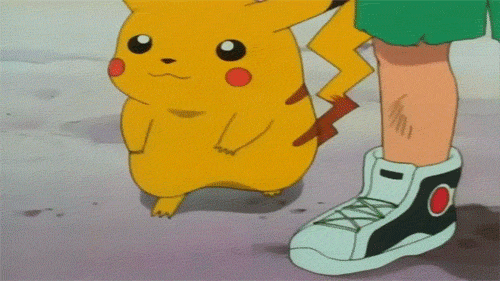





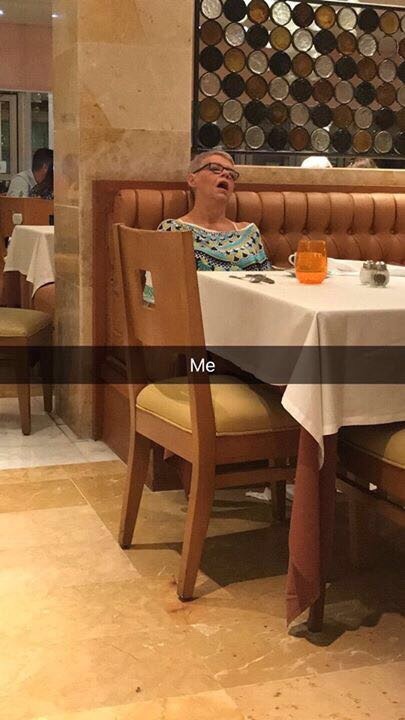


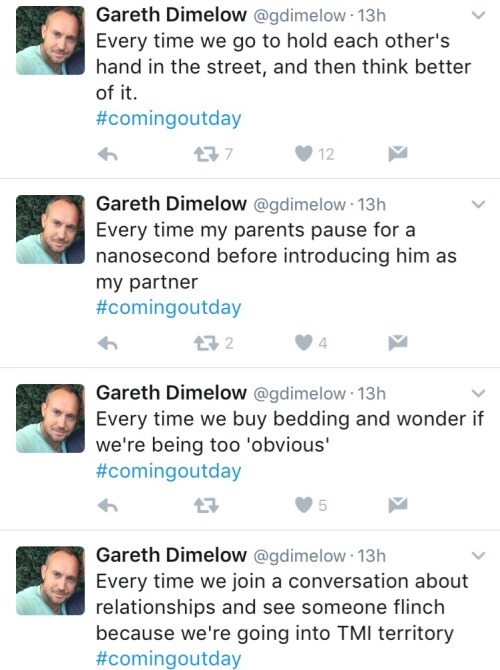
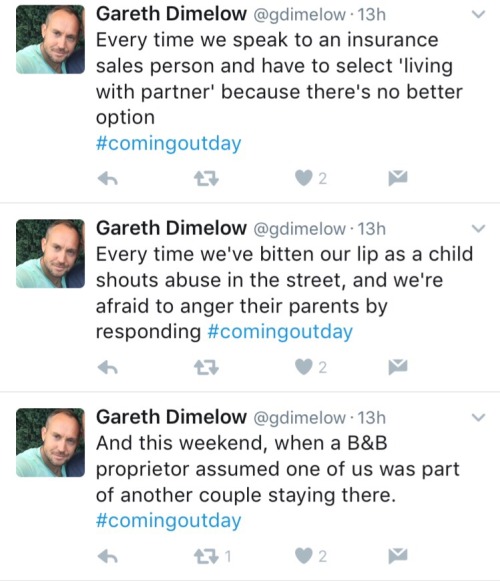
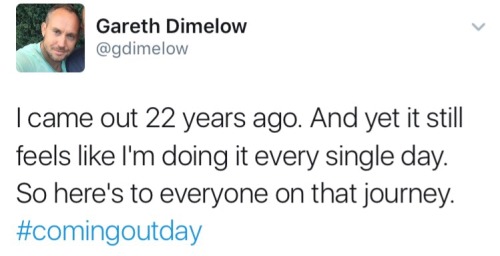
I’m so tired.

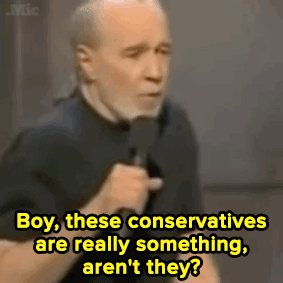


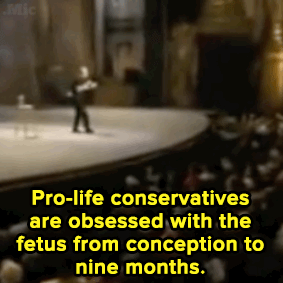

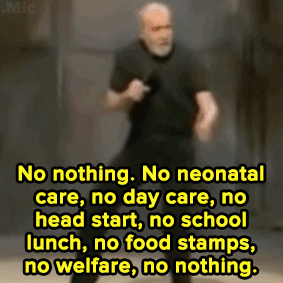

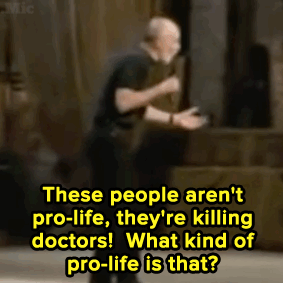


Watch: George Carlin spoke the truth about pro-lifers in 1996 — and it’s still being proven today.
me
me: *sees anything* me: me


























“Lighten Up” by Ronald Wimberly
Beautifuly written- and drawn.
-
 janetanne liked this · 15 years ago
janetanne liked this · 15 years ago -
 brucebruce reblogged this · 15 years ago
brucebruce reblogged this · 15 years ago